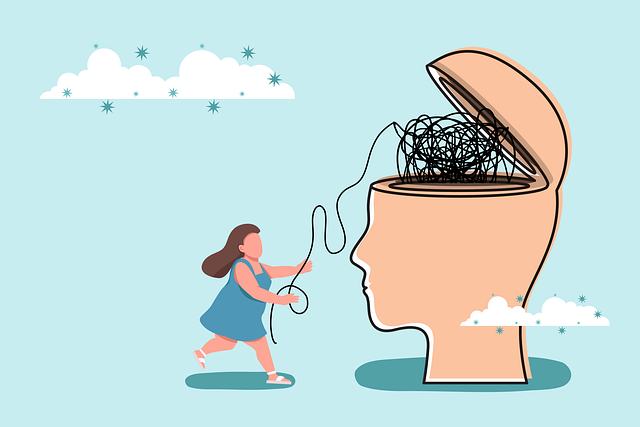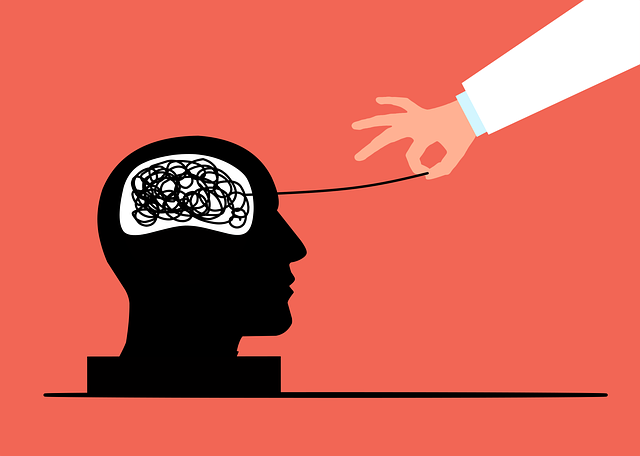Mental health advocacy, led by initiatives like Lone Tree Couples Counseling Therapy, is key to creating a supportive society for those facing mental challenges. By combining education, support networks, and empowerment, these efforts reduce stigma, encourage empathy, and promote open conversations about mental wellness. Lone Tree Couples Counseling Therapy uses evidence-based practices, culturally sensitive care, and storytelling to improve self-esteem, teach resilience, and provide tailored coping strategies, ultimately fostering a healthier, more compassionate community with accessible mental health resources.
Mental health advocacy initiatives play a pivotal role in fostering inclusive communities and improving lives. This article delves into the significance of these efforts, exploring their impact on individuals and society at large. We’ll dissect key strategies for successful mental health advocacy, highlighting the crucial role that Lone Tree Couples Counseling Therapy plays in promoting mental wellness through targeted advocacy programs. Understanding these initiatives is essential to creating a more supportive environment for those grappling with mental health challenges.
- Understanding Mental Health Advocacy: Why It Matters and Who Does It Affect?
- Strategies for Effective Mental Health Advocacy Initiatives
- The Role of Lone Tree Couples Counseling Therapy in Promoting Mental Wellness Through Advocacy
Understanding Mental Health Advocacy: Why It Matters and Who Does It Affect?

Mental health advocacy initiatives are crucial in creating a supportive environment for individuals dealing with various mental health challenges. Understanding advocacy goes beyond mere awareness; it involves active support and promotion of mental wellness, ensuring accessibility to resources like Lone Tree Couples Counseling Therapy. This is particularly significant given that mental health issues can affect anyone, regardless of age, background, or status.
Advocacy plays a pivotal role in reducing the stigma surrounding mental illness, fostering empathy, and encouraging open conversations. It empowers those struggling with emotional regulation to seek help without fear of judgment. By integrating practices like compassion cultivation and maintaining a mental wellness journal as part of their self-care routines, individuals can better navigate their journeys. These initiatives ultimately contribute to a healthier, more compassionate society where everyone has access to the guidance needed for optimal mental health.
Strategies for Effective Mental Health Advocacy Initiatives

Mental health advocacy initiatives require a multi-faceted approach to create meaningful change. By combining education, support networks, and empowerment, communities can foster an environment that prioritizes mental well-being. One effective strategy is to leverage the power of storytelling, where individuals share their personal journeys, breaking down stigma and encouraging others to seek help. Lone Tree Couples Counseling Therapy, for instance, has utilized this method, showcasing how vulnerability and openness lead to increased understanding and support within communities.
Moreover, integrating evidence-based practices like Mind Over Matter principles can equip individuals with valuable coping mechanisms. Empathy-building strategies are also vital; training community members to recognize signs of struggle and offer genuine support can make a significant difference. Additionally, promoting Self-Care Routine Development for Better Mental Health encourages proactive measures, teaching individuals how to maintain their mental health through consistent self-care practices.
The Role of Lone Tree Couples Counseling Therapy in Promoting Mental Wellness Through Advocacy

Lone Tree Couples Counseling Therapy plays a pivotal role in promoting mental wellness through advocacy, targeting individual and collective well-being. Their approach intertwines evidence-based practices with compassionate care, addressing not only interpersonal issues but also fostering self-esteem improvement and cultivating mind over matter principles. By creating a safe space for clients to explore complex emotions, therapists enable them to navigate life’s challenges more effectively.
This counseling therapy emphasizes the importance of cultural sensitivity in mental healthcare practice, ensuring that diverse individuals feel seen and heard. Through tailored interventions, they empower clients to embrace resilience, enhance communication skills, and develop coping strategies grounded in their unique experiences. By advocating for mental health awareness and accessibility, Lone Tree Couples Counseling Therapy contributes significantly to building a more supportive and inclusive community where everyone can thrive.
Mental health advocacy plays a pivotal role in fostering inclusive communities and ensuring everyone receives the support they need. As discussed, initiatives like Lone Tree Couples Counseling Therapy demonstrate the power of collaborative efforts in promoting mental wellness. By combining education, awareness, and direct support, these efforts can lead to significant positive changes. Through understanding the impact on various individuals and implementing effective strategies, we can create a more supportive environment where mental health is prioritized and stigmatization decreases. This collective approach is key to building a healthier, more resilient society.













